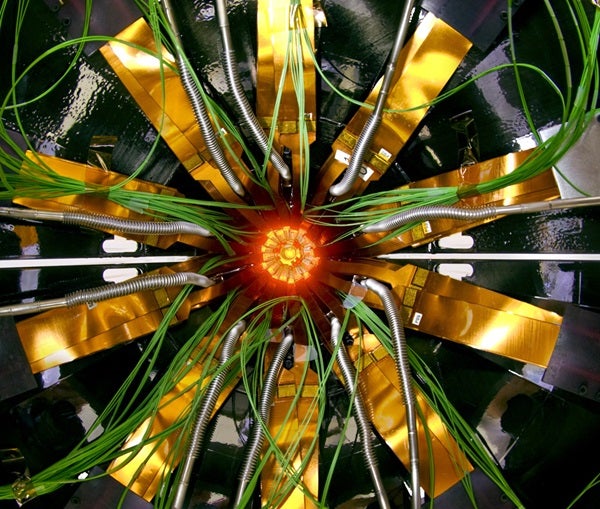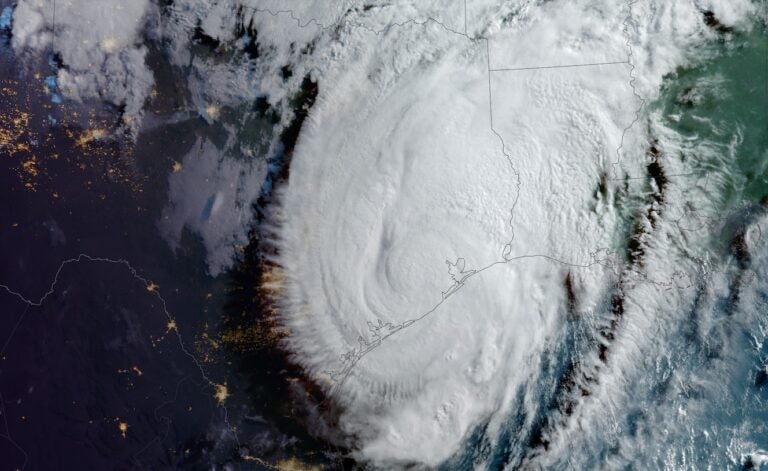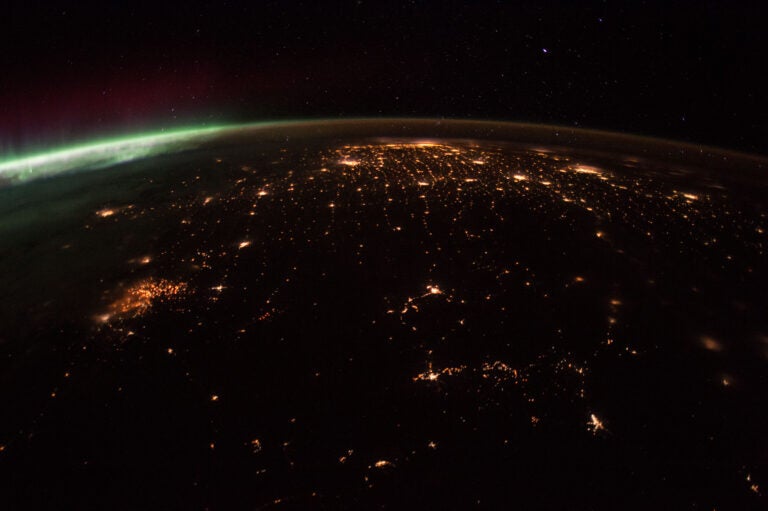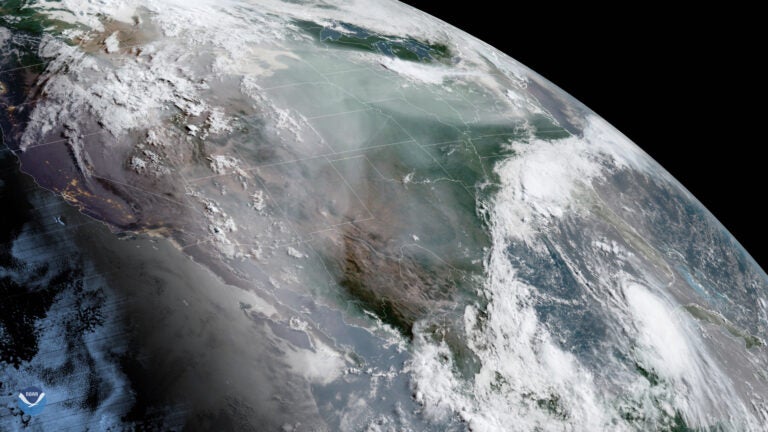Q: Does temperature have an upper limit like the lower limit of absolute zero? What’s the highest measured value?
A: The universe’s “absolute high” temperature correlates to the energy and heat that existed during the Big Bang. The physics rule that energy must be conserved doesn’t allow any more energy than that which existed at the universe’s beginning. The highest temperature that scientists have created — and thus measured — is 2 trillion kelvins. That was in the “quark-gluon plasma” created in an experiment at the Large Hadron Collider in Europe. Two streams of lead nuclei traveled toward each other at nearly light-speed. When they collided, they produced a hot plasma — the fourth state of matter made of ionized gas.










